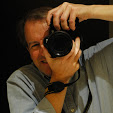NYT: "Chieko’s brazen attempts to solicit attention result, again and again, in humiliation, and Ms. Kikuchi’s performance is an unnerving blend of sexual provocation, timidity and sheer rage. Of all the characters in Babel she seems most surprising and least tethered to cultural stereotype (in spite of the short-skirted schoolgirl uniform she wears). And her story, unfolding without evident connection to the other three, does not seem quite as bound by the fatalism that is Mr. Arriaga’s hallmark — as well as his limitation — as a storyteller.
The splintered, jigsaw-puzzle structure of “Babel” will be familiar to viewers who have seen “Amores Perros” or “21 Grams,” the other two features Mr. Arriaga and Mr. González Iñárritu have made together. Indeed, this movie belongs to an increasingly common, as yet unnamed genre — “Crash” is perhaps the most prominent recent example — in which drama is created by the juxtaposition of distinct stories, rather than by the progress of a single narrative arc.
The sheer sensory exuberance of the film at once subverts the fatalism of its story and lends it whatever credibility it has. On paper, very little of it makes sense, but what is on screen has an almost physical impact. In the end “Babel,” like that tower in the book of Genesis, is a grand wreck, an incomplete monument to its own limitless ambition. But it is there, on the landscape, a startling and imposing reality. It’s a folly, and also, perversely, a wonder.
Guardian: "The Tower of Babel, iconically painted by Pieter Brueghel the Elder in the 16th century, forgettably re-created by John Huston in his film The Bible, is - as recorded in the first nine verses of Genesis, Chapter XI - one of the founding myths of Judaeo-Christian civilisation. It's a brutal tale of God's anger over the hubris of a united humanity's attempt to build a tower whose top might reach heaven. To punish His own creations, He scattered them to the four corners of the earth and 'confounded their language, that they may not understand each other's speech'. During the first third of the 20th century the silent cinema went some way towards the forging of a universal, unifying art which was destroyed by the coming of sound. So the film Babel, which concerns itself with what divides and unites mankind, unfolds in four languages - English, Spanish, Arabic and Japanese.
"The global village depicted in Babel is a harsh, unfair place. Tourism and mass media have done little to improve mutual respect and understanding. The film does not state this directly, but it dramatises it in a powerful and moving fashion. The task of re-creating that human unity God destroyed when the Tower of Babel was being built is probably too great, or has been too long neglected. Some will think this film glib and overly schematic. I found it an impressive, beautifully acted work with a tragic sense of life. The formality of its structure controls a seething anger."
skip to main |
skip to sidebar
Tangential and Interesting Quotes, Sketches, Theories and Surf

No comments:
Post a Comment